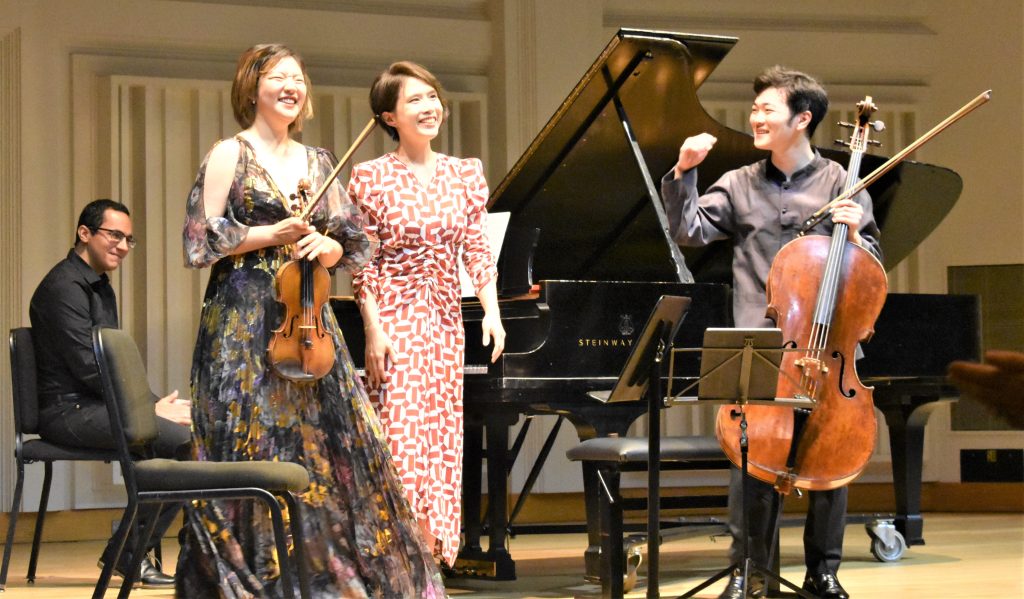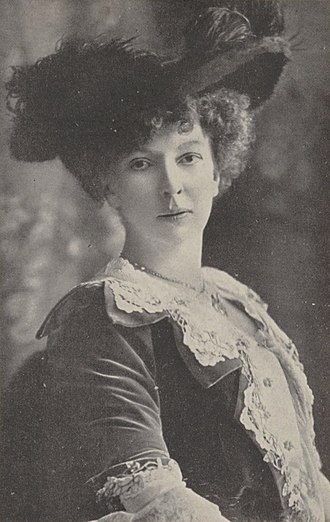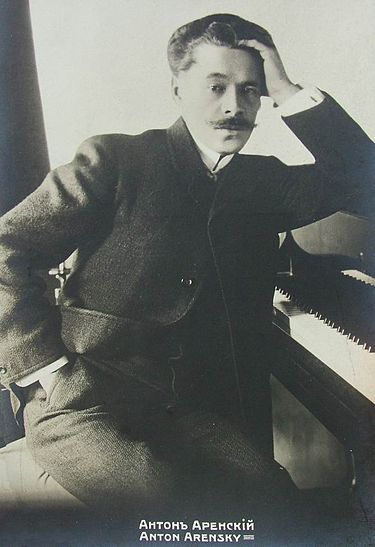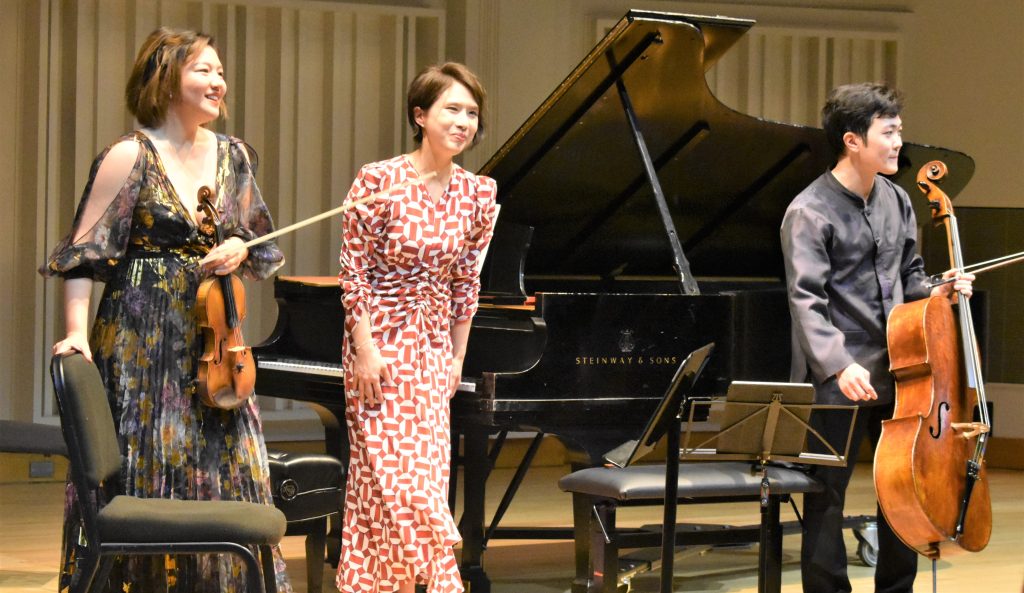
by Kevin T McEneaney
As culmination of the Hudson Valley Chamber Music Series at Bard’s Olin Hall, Trio Seoul, who has won over twenty international competitions, performed an unusual program of lesser-known works in the classical repertoire; its violinist, Jinjoo Cho, a student of Jaime Laredo and Itzhak Perlman, was recently awarded First Prize at the International Violin Competition of Indianapolis playing the Joan Tower (of Bard College) composition, String Force.
Piano Trio No. 1 in C Minor, Op. 8 by Dmitri Shostakovitch opened the program. Composed as a student exercise, this uncharacteristic, extroverted fantasy is brash and comic—a dramatic macabre fantasy series based upon Russian folk tales, most likely about the witch Baba Yaga and the hysterical wailing of wolves. While such gymnastic pyrotechnics and sprightly humor was not destined to be Shostakovich’s gift or fate in life, this intense light-hearted performance had the audience at the edge of their seats. Jinjoo Cho was in hysteric overdrive while pianist Kyu Yeon Kim, laureate of the Queen Elizabeth, Dublin, and Geneva competitions raced with ghoulish arpeggios. Cellist Brannon Cho, also a top prize winner of the Queen Elisabeth, Naumburg, and Cassadó International Cello Competitions, laid down the dark forest floor humming with brambles, stones, and thorns. The unified pace was astonishing.

Jinjoo has been a champion of interesting forgotten works. Parisian-born Cécile Chaminade (1857-1944) was a talented Romantic composer whose Concertino, Op. 107 remains an important composition in the flute repertoire, however, most of her 400 published compositions are rarely played in the U.S. Piano Trio No. 2 in A Minor, Op 34 (1887) delighted in its four movements: the first describing the joy of dawn, a list of domestic tasks to perform and satisfaction at their completion; the second movement appeared to describe a survey of the old Paris markets; the third movement wonderful weather and glorious sunset; the forth movement described a fierce tempest of slashing rain and its eventual diminishment. Key to the style was the seamless way melodies were transferred between the three instruments. The was a lively and charming rather early work of Chaminade that transformed the ordinary into transcendent and memorable music.

Scattered dreams for piano, violin, and cello (2022) by South Korean composer Uzong Choe was commissioned by Trio Seoul as a companion work to Piano Trio No. 1 in D Major, Op. 37 by Anton Arensky (1861-1906) whose trio employed Korean folk tunes at a time when Japan invaded Korea. Uzong Choe’s work was a minimalist distillation of those Korean folk tunes into a post-modern idiom, a tribute work that was so concise that it appeared to vanish before its legs walked. Upper class Arensky was fond of Romantic folklore motifs, as in Glinka and Balakirev, for his chamber music, which is one likely reason why the Ukrainian modernist Stravinsky dismissed Arensky’s work entirely, especially since Arensky at times appeared to be similar in drink and gambling to the anti-hero protagonist of Abbé Prevost’s Manon Lescaut.
This piano trio was dedicated to the famous Russian cellist Karl Davydov. Consequently, the robust cello line in all four movements allowed the cello to be the anchor of sanity amid the stormy hysteria of both violin and cello; the cello had sound answers to the over-the-top piano and near-wild violin outbursts performed with dazzling virtuosity by Jinjoo.

Resurrecting interesting, forgotten works with superb performance offers an awesome recipe for the same-old chestnuts roasting on the hibachi at sunset